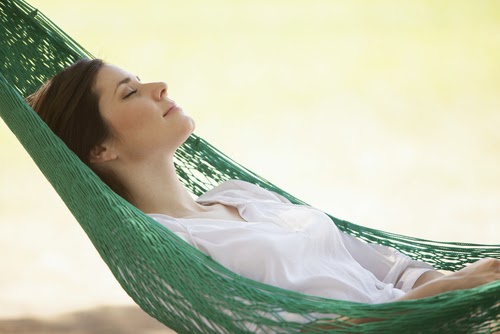re-blogged from Well Within You by, Richard Pagoda-
"Make the most of your Nap"
It used to be that naps were thought to be only for the idle, the lazy or super-young. In fact, scientific studies conducted years ago showed that napping reduced the quality of overnight sleep and could, in effect, do more harm than good to our health.
The fact is that the more we study the human body, the more we learn. Fast forward from the old studies to today and the latest studies show that napping, if done correctly, is beneficial. Napping can promote good physical health, emotional health and even mental health.
What do studies show?
The National Institute of Mental Health published studies that show napping boosts creativity, increases the ability to learn, improves understanding and information processing, enhances happiness, reduces anxiety and may even be linked to a lower risk of heart disease.In fact, in studies that compared how effective increased caffeine intake was to a short power nap, the nap won out. Participants stated that napping helps to reduce fatigue, enhance mood and sharpen motor skills better than that cup of java. Scientists speculate that that the brain may get fatigued during the day and a short nap helps the brain to catch up, although research is ongoing with regard to that theory.
Length of time
The most effective naps last only 10-20 minutes. The reason is that a person only goes through the first stage of sleep, which is a very light sleep. This means that upon wakening, there is no grogginess, but there is a noted increased in alertness and concentration.
A 60-minute nap, in which a person usually goes through sleep stages one, two and perhaps even three will show improvement when it comes to memory performance and information process. The downside is that a person is very groggy and slow upon waking.
After a 90 minute nap, in which one goes through at least one REM cycle, a person will show improvement in terms of creativity and emotional processing. They may wake up less groggy than the 60 minute nap, but a longer nap may also affect the ability to sleep that evening.
Helpful hint: In order to sleep for only 20 minutes, you can drink a cup of coffee right before you take your nap. Caffeine starts to kick in 15-20 minutes after consumption and will help you wake back up at the right time.
Tips for better napping
- See more at: http://wellwithinyou.com/articles/make-the-most-of-your-nap.html/?source=mail&emd5=f359f8c366af68b4373434638e5c1ec7&token=00000008657328e#sthash.6AZ2yTdU.dpuf
Make the Most of Your Nap
"Make the most of your Nap"
It used to be that naps were thought to be only for the idle, the lazy or super-young. In fact, scientific studies conducted years ago showed that napping reduced the quality of overnight sleep and could, in effect, do more harm than good to our health.
The fact is that the more we study the human body, the more we learn. Fast forward from the old studies to today and the latest studies show that napping, if done correctly, is beneficial. Napping can promote good physical health, emotional health and even mental health.
What do studies show?
The National Institute of Mental Health published studies that show napping boosts creativity, increases the ability to learn, improves understanding and information processing, enhances happiness, reduces anxiety and may even be linked to a lower risk of heart disease.In fact, in studies that compared how effective increased caffeine intake was to a short power nap, the nap won out. Participants stated that napping helps to reduce fatigue, enhance mood and sharpen motor skills better than that cup of java. Scientists speculate that that the brain may get fatigued during the day and a short nap helps the brain to catch up, although research is ongoing with regard to that theory.
Length of time
The most effective naps last only 10-20 minutes. The reason is that a person only goes through the first stage of sleep, which is a very light sleep. This means that upon wakening, there is no grogginess, but there is a noted increased in alertness and concentration.
A 60-minute nap, in which a person usually goes through sleep stages one, two and perhaps even three will show improvement when it comes to memory performance and information process. The downside is that a person is very groggy and slow upon waking.
After a 90 minute nap, in which one goes through at least one REM cycle, a person will show improvement in terms of creativity and emotional processing. They may wake up less groggy than the 60 minute nap, but a longer nap may also affect the ability to sleep that evening.
Helpful hint: In order to sleep for only 20 minutes, you can drink a cup of coffee right before you take your nap. Caffeine starts to kick in 15-20 minutes after consumption and will help you wake back up at the right time.
Tips for better napping
- Nap during the middle of your day. For those who sleep from 10 pm to 6 am, a nap taken during the 1 pm to 3 pm hours is best.
- Make the napping location quiet and dark.
- Get into the habit of taking a nap.
- See more at: http://wellwithinyou.com/articles/make-the-most-of-your-nap.html/?source=mail&emd5=f359f8c366af68b4373434638e5c1ec7&token=00000008657328e#sthash.6AZ2yTdU.dpuf
Make the Most of Your Nap







